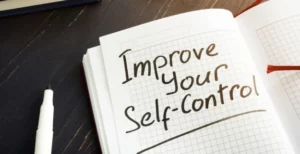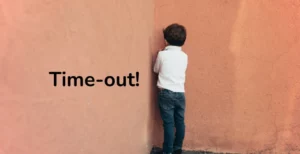Child development and Parenting are two independent yet deeply interconnected entities. They are like small pockets deeply hidden under the sea bed unfolding at their own pace, place, and time. Children evolve by the experiences they receive, with the environment they belong to, and the way they are responded to by their stakeholders. Every experience scaffolds with each passing day, which significantly helps them to know the uncertain yet magical world around them and the people!.
When they have uncontrollable crying spells, by attending to them you are displaying unconditional love. By aimlessly conversing with them, you are building connections verbally and non-verbally. By mindfully spending time with them, you are sharing information about the world. By helping them pass through a tantrum, an outburst, or a mood swing you are allowing them to be okay with every emotion. By being silly at play, you are encouraging togetherness and raising the spirits. You are instilling trust by being available when hurt or sick, feeding, being present in a new place with unknown people, or being at the other end of the slide! For children, we are the source.
“Life doesn’t make any sense without interdependence. We need each other, and the sooner we learn that the better for us all.” – Erik Erikson
One of the most important relationships that unfolds between a child and a parent, is a special relationship of trust. When Erik Erikson, a German-American developmental psychologist, and psychoanalyst theorized the stages of psychosocial development, the very first stage he built was the stage of Trust vs Mistrust.
According to Erik Erikson, the development of trust starts right from birth and extends till 18 months of age.
Building trust is like a two-way street. It is reciprocal in nature. But, the first step begins with you, as parents. Erikson opined that children learn in stages and phases.
Eventually, children develop a sense of trust when their needs are met. They purely rely on positivity in the environment and consistency in parental behavior and responses. Although important, at times it is challenging to mindfully nurture these attributes along with daily parenting rituals.
We have compiled five beautiful ways that could help you to build trust in your little ones!
1. Cuddle and care
With children, it is all about actions and observable behaviors. They will have to see it in order to feel it. Cuddling, playing blocks or puzzles, singing, doing activities together, reading a funny picture book, blowing water bubbles, or a pillow fight! Eating together, a walk together, or talking about bees and butterflies. These everyday actions are powerful. These interactions facilitate attachment and stimulate a sense of security thereby building trust.
2. A safe space is a great space!
An environment does a lot for people and children. It could either strengthen and foster development or create traumas or accidents. There is no need to have an extravagant space to grow. To build trust a parent could just be available to assist, encourage, and participate in the wonder of a spider on the wall or the shape of a glass.
3. Stop scrolling, attend to the curiosity within them!
The simplest way to build trust in children is to be available even when they have silly questions and funny observations to share. A response from a parent evokes delight, leads to questions, questions turn into conversations and finally conversations lead to learning and trust. It is a usual scenario to scroll while on the phone and parallelly respond to them. Mindful parenting is taking a few seconds out and participating in whichever ways possible.
4. Communicate to connect.
Talking to children is a powerful way to share your love, support, and care with them. Using phrases such as ‘We will do this together’ or ‘I know it’s a bit difficult but I will help you!’ or ‘I will be there for you’ or ‘I know you will do your best!’ or ‘You can do it!’ could help children to trust themselves and you as parents.
5. Practice what you preach
Listen, when they speak good, bad, evil, rude or rubbish. Locate the trigger and understand the purpose of the behavior. It is either attention or avoidance. You do expect them to listen to you, now it’s your turn!
Keep promises, and be mindful of what you say ‘yes’ or ‘no’ to. Never rush in responding. Pause first to react. Remember what you preach.
Tell the truth, always. Say it out loud. They may not understand the gravity but they will surely notice the clarity and consistency in your behavior.
Be open to accepting their reactions, as they have reasons. With acceptance, they feel they have found a safe space to share fears, worries, tantrums, and joy. Openness and acceptance build trust in themselves and relationships!
When children feel their needs are met, they trust you. When they find you reliable, they are learning to trust you. When they feel you are accepting and deeply listening they are learning to rely on you for support. Trust is tricky and a complicated affair.
There are millions of tiny tales, every day which could help you to build trust with your child, you will have to find your own unique way.
Meanwhile, you can pause, reflect, observe, listen, love, laugh, think and respond!




